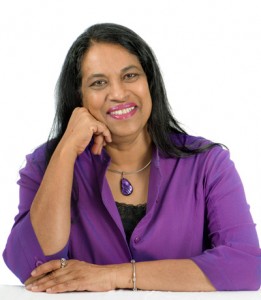Let me tell you a bit about myself.
I always wanted to be a doctor—from the time I was four years old. Why? I have no idea. There was no one in my family at the time who had done medicine.
I was born in Fiji of Indian parents. My great grandparents, coming into Fiji as indentured labourers put a great value on education. Education was the ticket to freedom and for women—independence.
My maternal grandmother had a profound influence on my life. She embodied that indefinable quality—grace. She had no formal education but was fluent in four languages and managed a fifth (English) passably. She read prolifically and wrote exquisitely. She nurtured me physically, mentally, emotionally and spiritually. By living it, she gifted me with an awareness of a holistic life. I got the love of travel, books and learning from my father.
I have always been, and still am, an avid reader. When I was a teenager there was some seed that floated into my consciousness about the mind. Since then it has niggled away at me.
I did indeed study medicine. I won a scholarship and came to Australia, by myself, at 17 to Monash University. During this time what I read and saw as the power of the mind was still percolating in the background. I wondered if psychiatry was the path that would allow me to find whatever it was that I was looking for. It didn’t seem so. I turned my attention to practising medicine as a GP. As time went on in my practice I felt a very strong belief that there was more to healing than attending to the physical. Later, when people like Dr Deepak Chopra came my way (some 20 years ago now), my exploration of the concept of Mind-Body Medicine began.
I had started meditating as a way to create some stillness and balance during what was a very challenging time in my life. The more I read, the more convinced I was that there was a different way to create health. Even though there was so much written about Mind-Body Medicine, I was looking for a university, an institution with credentials that either ran a course that gave the idea validation or had some facility that used these concepts to treat people and return them to health.
About 15 years ago, a line in the book I was reading one evening knocked the breath from my body. It said “Dr Herbert Benson, founder of the Mind-Body Institute at Harvard University. . .” I have no idea what the rest of the sentence said. My only thought was: this is real—Harvard has a Mind-Body Institute! Within hours (computers and internet access were not quite what they are today!) with international directory assistance, I was put straight through to Herbert Benson himself! The rest, as they say, is history.
A few months later I packed up my home, left my job, and took my young daughter to live in the US for six months. And so began this part of my journey. My time in the US was transformational. I have done many courses to explore this area further. An ever-increasing number of new things come to light. I realised the mind, emotions we feel and the body are intrinsically connected. To have health and well-being we need to address all these aspects. I left my practice as a GP in 2004 because the Mind-Body connection was what I wanted to pursue.
My daughter is a lovely, successful and happy young woman. This is what we all want as parents. I was reflecting recently on how I have changed over the years. My own growth has had some positive spin off on my daughter—she has naturally integrated the things I had to learn, as part of her life. Kids will do what you do—not what you say.
Ultimately, for me, Mind-Body Medicine is not an alternative treatment. It is about integrative treatment—it is about integrating the best of western medicine with other practices to facilitate and enhance well-being.





